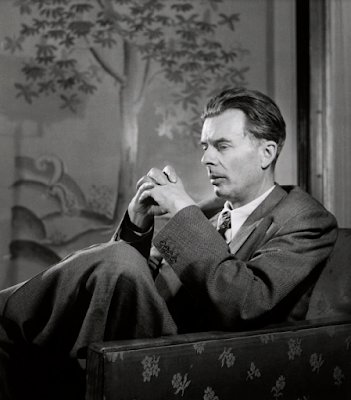If delivered today, the final part of Huxley’s 7-part lecture series at MIT would probably be classified under motivational speaking or self-help strategies. It surveys various less explored non-pharmacological means for realizing the best versions of yourself. Or, as he puts it, realizing our desirable potentialities.
Some of the famous tools discussed by Huxley for self-realization are the Alexander Technique and Gestalt Therapy. While the former is considered a pseudoscientific medicineI’m not using it as an insult, for a change.Huxley tells us about the influential teacher John Dewey’s admiration of FM Alexander’s work. He echoed Dewey’s preface in one of Alexander’s books:
Alexander’s technique is to education what education is to life in general. It proposes an ideal and provides the means by which that ideal can be realized.
Aldous Huxley paraphrases John Dewey
Although it is mentioned much later in his lecture, today a figure like Huxley might need to lead his lecture with this part to convey the importance and validity of such approaches. Huxley does not really go into details as to why or how this is true but does praise Alexander’s contribution. I have a friend who swears by it to enhance her dance practice, although I haven’t yet understood what it does – it seems very similar to meditation in terms of increasing awareness.
Huxley believes that such practices are effective to reproduce psychologically Desirable qualities in a person instead: to breed genetically undesirable; Or medicinal enhancer To enhance our intellectual abilities – i.e., improving attention span or reducing sleepiness mental efficiencyHere, Huxley predicted the emergence of Adderall, although I was less impressed by his euphoric pharmaceuticals prediction, After all, this lecture was given many years after the publication doors of perception,
He claims that these psychological approaches lead to inherent efficiency, because they train humans to be fundamentally happy; He felt that pharma-euphorics could also achieve something one day. The reason such therapies are effective is that they do not provide a homogeneous training; Instead, they can be adapted to individual personalities and their internal differences, allowing each person to realize their latent potentials in different ways. It is a longstanding belief that there is no single ideal version of a human being; Huxley finds the most realistic (or complete) ideals in the three formulations of the Bhagavad Gita. Devotion (bhakti), selfless action (karma), and contemplation (jnana) can all lead to enlightenment, i.e. the attainment of desirable qualities. He sees a correspondence between these formulations and William Sheldon’s recent Western classification of humans by somatotypes – which is quite problematic when I read the traits listed in this table. Although I admire his ability to make connections through historyWhether I see them or not is no less important.I don’t see the connection between the two beyond the fact that these are categories. They are not comparable in any way so perhaps I missed the point of this comparison.
He highlights the positive results of training one’s imagination through Gestalt therapy and the similarities seen in Richard DeMille’s strategies. children’s imagination gamesFor example, children find more enjoyment in life by having adults approach adverse or intimidating situations in a more playful way so that things seem less serious than they need to be.This is how I understood this section.The examples given here by Huxley reminded me of the examples he gives to nervous interviewers and public speakers, such as “Imagine your audience is naked”, to get the edge,
As a teacher I am very sympathetic to Huxley’s grand idea in this lecture that we should develop new methods of education that adapt to personality variations; The current strategy of engaging students in similar training-and-testing modalities remains inappropriate, especially as technological advances – which academics struggle to keep up with – may enable more personalized and expressive learning. He does not envision one-to-one therapy as a scalable solution to realizing reality; Instead, he suggests forming pre-existing categories of humans into groups of three or more in order to test other methods and potentially develop new ones based on past practices.
Although I think the entire lecture is eloquently delivered, I’m not sure it has more of a thesis than that; This is a survey of techniques that rely on anecdotal evidence or name-dropping to state their effectiveness.
Tomorrow’s post will highlight how he sees the role of the humanities in helping us realize our desirable potentialities, which Huxley discussed in his lectures. It will also include my own concluding thoughts on his lecture. Maybe when I ponder his words overnight I’ll glimpse some of this thesis.
related writing
